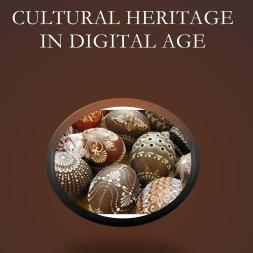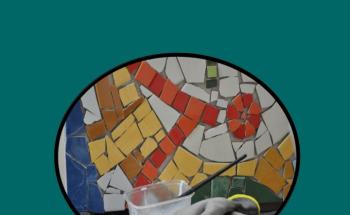
Digital Dynamic Cultural Dialogue (DDCD-LT)
- Cultural heritage and responsible use of digital technology.
- Preservation and promotion of the intangible cultural heritage in the digital age.
- Immigration and social inclusion which influences the dynamic nature of our cultures.
- Experiences, practical activities, visits, and discussions.
- Learning through experience followed by reflection in relation to the digital competence.
Description
Day 1 – Heritage and respect for nature
- Intangible cultural heritage
- Some thoughts about culture
- Culture in daily life
- Digital dialogue in digital competence
- Respect for nature
- Belief system and moral rules
- Reflection on TwinSpace
Day 2 - Art in culture
- Intangible nature of crafts
- Natural materials
- Digital dialogue: objects that tell the stories
- Reflection on TwinSpace
Day 3 - Language in culture
- Mother language
- The role of the language in culture
- Digital dialogue: visual audio messages
- Reflection on TwinSpace
Day 4 - Music in culture
- Music: the cultural context
- Music and dance workshop
- Digital dialogue: video messages
- Reflection on TwinSpace
Day 5 - Traditions in culture
- Custom vs tradition
- Similarities and differences in social practices
- Digital dialogue: hidden objects in a visual message
- Reflection on TwinSpace
Day 6 - ICT - Safeguarding cultural heritage
- Purpose of ICT tools
- Social and economic value of heritage
- Identity damage
- Heritage cycle
- Digital dialogue: project plan with Magic Padlet
- Feedback on TwinSpace
Learning objectives
- - Understand the importance of a dynamic cultural heritage in the European context;
- - Work in cooperation with other participants preserving the cultural heritage;
- - Participate in the international and intercultural exchange.
- - Learn how to use digital technologies responsibly to preserve cultural heritage;
- - Understand the benefits and pitfalls of media tools;
- - Develop a personal activity plan how to promote opportunities for pupils and students to experience culture.
Methodology & assessment
Participants register on eTwinning and familiarise themselves with the platform and complete the preparation assignments.
Implementation:
Learning through experience is the key element in this course. Participants study and discuss the theoretical background of the ideas, engage in the related experiences and reflect on their personal learning. The outdoor classrooms are chosen to enhance the learning and experiences.
eTwinning is an important component of the course work where participants share their daily learning ideas and reflections. It also serves as a monitoring and dissemination tool: https://school-education.ec.europa.eu/en/etwinning/projects/digital-dynamic-cultural-dialogue/twinspace/pages
Follow-up
After the course participants will reflect on the gained knowledge and its application in their own educational environment. They will complete a report to be sent to their national agency. The trainers will provide support for collaboration between participants encouraging them to initiate partnerships projects, help to find partners and participate in international work.
Certification details
Certificate of attendance (course title, dates, hours, evaluation of participation).
If requested by participant - Europass mobility document.
Pricing, packages and other information
-
Price:520Euro
Дополнителни информации
-
Јазик:English
-
Target audience ISCED:Primary education (ISCED 1)Lower secondary education (ISCED 2)Upper secondary education (ISCED 3)
-
Target audience type:TeacherHead Teacher / PrincipalLibrarian
-
Learning time:25 hours or more
Upcoming sessions
Past sessions
More courses by this organiser


